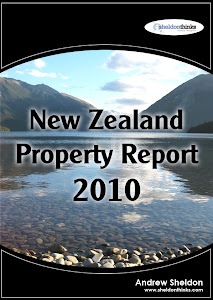There was an article in the NZ Herald today highlighting the appeal of NZ farming properties as an investment opportunity. The author questioned why NZ'ers, instead even foreigners, are so interested in NZ rural property when the income is so bad. I makes the case that:
1. Rural properties are capital gains tax free
2. Rural properties have offered an average capital appreciation of 10.5%
There are another two further reasons to think there is even more upside in property:
1. Hedge: Property offers some appeal as protection from currency debasement. Commodities are priced in USDs. Thus if the NZD was debased because of poor government policy, there is a hedge in the sense that your US-denominated income will cover your capital loss.
2. Market access: There is scope for the USA-Japan-EU to eventually drop their agricultural tariffs and subsidies which have penalised NZ, as well as the third world. There is of course a trend towards free trade/trade liberalisation. The question is - how long will this take to occur?
3. Demand: There is a shift in Asian developing countries to meat-rich diets, so that demands more meat and dairy imports from places like NZ. Chinese, Filipinos, Koreans, Japanese, etc want bigger breasts, and to get those they need to drink milk. Of course they are also eating more protein like McDonalds, etc.
4. Investment: There is the opportunity to subdivide rural properties into lifestyle blocks.
A lot of property is no longer appealing for wool growing. There is some interest in these properties for timber-based industries, which are of course low-maintenance industries, and easily contracted out to third parties. There is even the prospect of tax, carbon credits and ancillary opportunities like using the waste products for renewable power generation.
Read more in this article or check out our NZ Property Guide. NZ has the obvious advantage over Australia in several respects:
1. Rainfall in NZ is more reliable
2. The currency is more directly tightened to the agricultural commodities, as opposed to metals and energy. This will not change for the next 10-15 years. NZ will eventually discover oil/gas I suspect.


